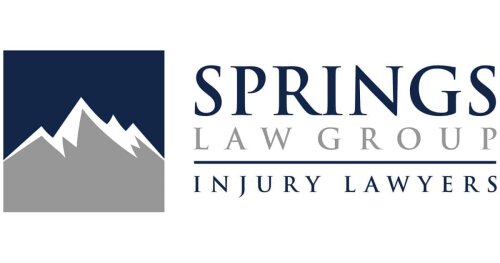Best ADR Mediation & Arbitration Lawyers in Colorado
Share your needs with us, get contacted by law firms.
Free. Takes 2 min.
Or refine your search by selecting a city:
List of the best lawyers in Colorado, United States

About ADR Mediation & Arbitration Law in Colorado, United States
Alternative Dispute Resolution, or ADR, refers to methods of resolving legal disputes outside of traditional courtroom litigation. The two most common forms are mediation and arbitration. In mediation, a neutral third-party helps disputing parties communicate and reach a mutually acceptable agreement. Arbitration is a more formal process where an arbitrator listens to both sides and then makes a binding decision. In Colorado, ADR is widely used in civil, commercial, employment, and family law cases. Many courts strongly encourage or require the parties to attempt mediation before a case proceeds to trial. ADR processes in Colorado are designed to be faster, less expensive, and less adversarial than traditional court proceedings.
Why You May Need a Lawyer
While ADR aims to simplify the resolution of disputes, legal issues can still be complex. Common situations where you may need a lawyer include:
- Drafting or reviewing contracts with mandatory arbitration clauses
- High-stakes business disputes where experienced advocacy is crucial
- Employment disputes involving non-compete agreements or wrongful termination
- Divorce and child custody matters requiring mediation
- Construction or real estate conflicts
- Personal injury claims where settlement negotiations have stalled
- Concerns about the fairness or neutrality of a process or arbitrator
- Questions about enforceability of mediation or arbitration agreements
- Appealing or challenging an unfavorable arbitration decision
An attorney can ensure your rights are protected, assist with negotiation or presentation, clarify Colorado-specific laws and procedures, and help you make informed decisions throughout the ADR process.
Local Laws Overview
Colorado’s approach to mediation and arbitration is shaped by both state statutes and court rules.
- The Colorado Dispute Resolution Act promotes mediation in civil cases and governs court-connected mediation services.
- Most District and County Courts can order mediation under Colorado Rules of Civil Procedure Rule 16.3.
- The Colorado Uniform Arbitration Act (CUAA) governs private arbitrations, addressing procedures from initiating arbitration to enforcement and appeals.
- Mediation is generally voluntary, but courts may order it in certain cases, such as contested divorces.
- Arbitration can be binding or non-binding, depending on the parties' agreement.
- Parties can select their mediators or arbitrators, or rely on court-appointed professionals.
- Confidentiality rules protect statements made during mediation from being used in later court proceedings.
- Arbitration awards can be enforced in court, and there are limited grounds for challenging an award, such as fraud or arbitrator bias.
It is important to remember that the specific laws and procedural rules may vary depending on the nature of your dispute and the terms of any agreements you have signed.
Frequently Asked Questions
What is the difference between mediation and arbitration?
Mediation is a voluntary process where a neutral third-party helps the disputing parties reach a compromise, but cannot impose a decision. Arbitration is a process where a neutral person hears both sides and makes a binding or non-binding decision that usually resolves the dispute.
Can the court require mediation in Colorado?
Yes, Colorado courts can order parties to participate in mediation, especially in civil and family law cases. This is intended to promote settlement and reduce the burden on the court system.
Are mediation and arbitration confidential?
Yes, communications during mediation are confidential and generally cannot be disclosed or used as evidence in court. Arbitration proceedings can also be confidential depending on the agreement between parties and applicable law.
How is an arbitrator chosen?
Parties may agree on an arbitrator or select one from a panel provided by an arbitration organization. If they cannot agree, a court may appoint an arbitrator.
Who pays for mediation or arbitration in Colorado?
The parties usually share the costs equally, unless they agree otherwise or a contract specifies payment responsibility. Some court-connected mediation programs charge based on income.
Is an arbitration decision final?
In most cases, arbitration decisions are legally binding and enforceable in court. Appeals or challenges are only allowed for limited reasons, such as arbitrator misconduct or fraud.
When is ADR not appropriate?
ADR may not be appropriate in cases involving criminal charges, certain family law matters where domestic violence is alleged, or where an urgent court order is needed for protection.
Can I have my lawyer present during mediation or arbitration?
Yes, you are generally permitted to have an attorney represent you throughout both mediation and arbitration processes in Colorado.
What happens if we do not settle in mediation?
If mediation does not result in an agreement, the case may proceed to trial or arbitration, depending on the circumstances and any prior agreements between parties.
How do I enforce an arbitration award in Colorado?
You can file a motion to confirm the arbitration award in the appropriate Colorado court. Once confirmed, it has the same effect as a court judgment and can be enforced accordingly.
Additional Resources
There are several organizations and agencies in Colorado that offer services, guidance, and support for mediation and arbitration:
- Colorado Office of Dispute Resolution (ODR): Provides mediation and other ADR services statewide
- Colorado Judicial Branch: Information about court-ordered ADR and relevant rules
- Local bar associations, such as the Colorado Bar Association, which offer lawyer referral services
- American Arbitration Association (AAA) and JAMS, which provide private arbitration and mediation services
- Colorado Legal Services: Free or reduced-cost advice for those who qualify
These resources can help you better understand your options, find qualified professionals, and access legal support if necessary.
Next Steps
If you believe that ADR is appropriate for your situation or if you have been ordered to participate in mediation or arbitration, consider the following steps:
- Consult with an attorney experienced in ADR to discuss your options and strategy
- Gather any relevant documents, contracts, or correspondence related to the dispute
- Contact the Colorado Office of Dispute Resolution or your local court to learn about available ADR programs and requirements
- Review any contracts or agreements to determine if they include ADR clauses specifying procedures
- Consider whether you prefer to mediate, arbitrate, or pursue another resolution method
- If financial concerns are an issue, explore low-cost or sliding fee ADR services
Having knowledgeable legal guidance can help you navigate Colorado’s ADR landscape, protect your interests, and achieve a resolution that works for all parties involved.
Lawzana helps you find the best lawyers and law firms in Colorado through a curated and pre-screened list of qualified legal professionals. Our platform offers rankings and detailed profiles of attorneys and law firms, allowing you to compare based on practice areas, including ADR Mediation & Arbitration , experience, and client feedback.
Each profile includes a description of the firm's areas of practice, client reviews, team members and partners, year of establishment, spoken languages, office locations, contact information, social media presence, and any published articles or resources. Most firms on our platform speak English and are experienced in both local and international legal matters.
Get a quote from top-rated law firms in Colorado, United States — quickly, securely, and without unnecessary hassle.
Disclaimer:
The information provided on this page is for general informational purposes only and does not constitute legal advice. While we strive to ensure the accuracy and relevance of the content, legal information may change over time, and interpretations of the law can vary. You should always consult with a qualified legal professional for advice specific to your situation.
We disclaim all liability for actions taken or not taken based on the content of this page. If you believe any information is incorrect or outdated, please contact us, and we will review and update it where appropriate.
Browse adr mediation & arbitration law firms by city in Colorado
Refine your search by selecting a city.










